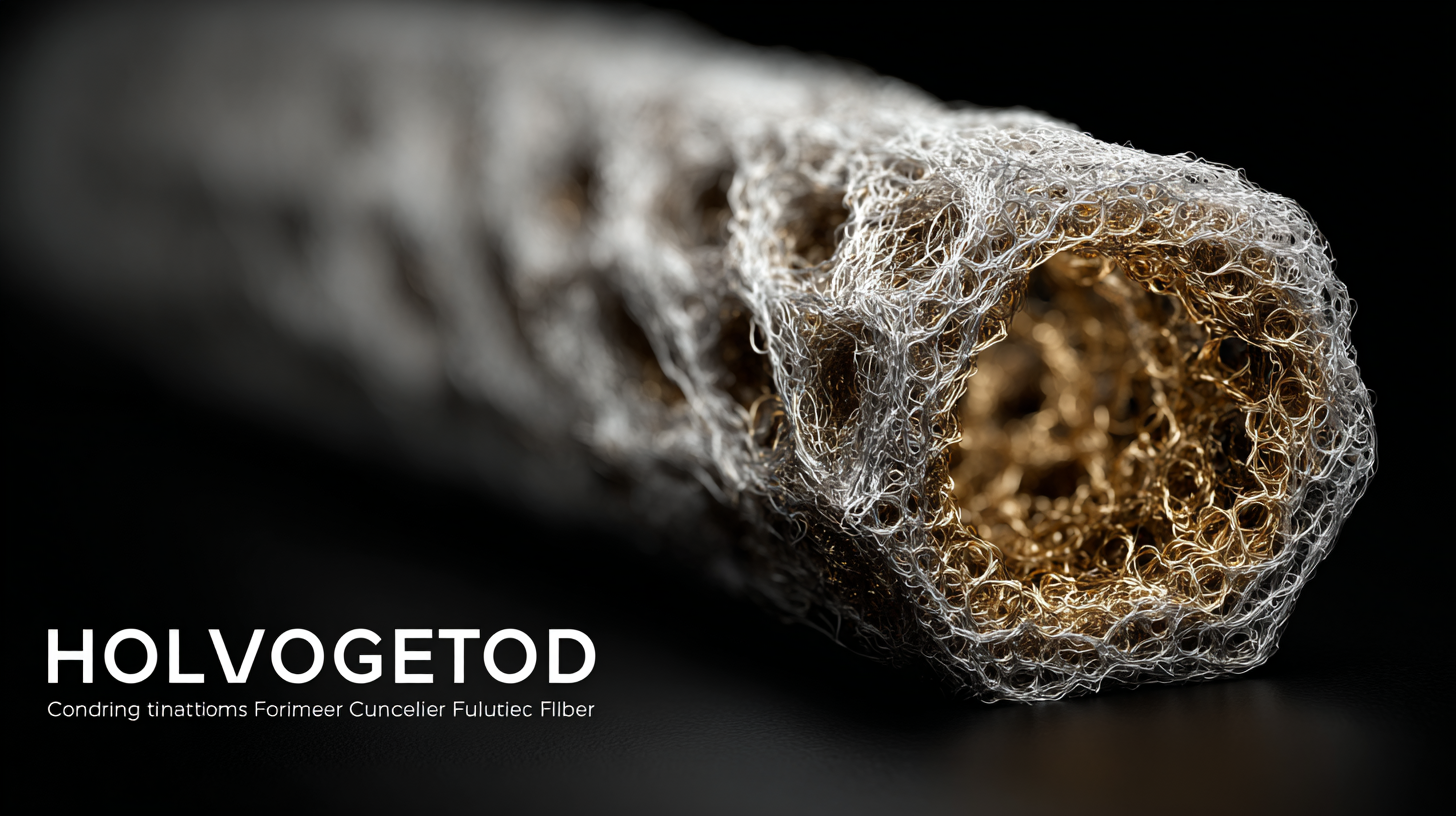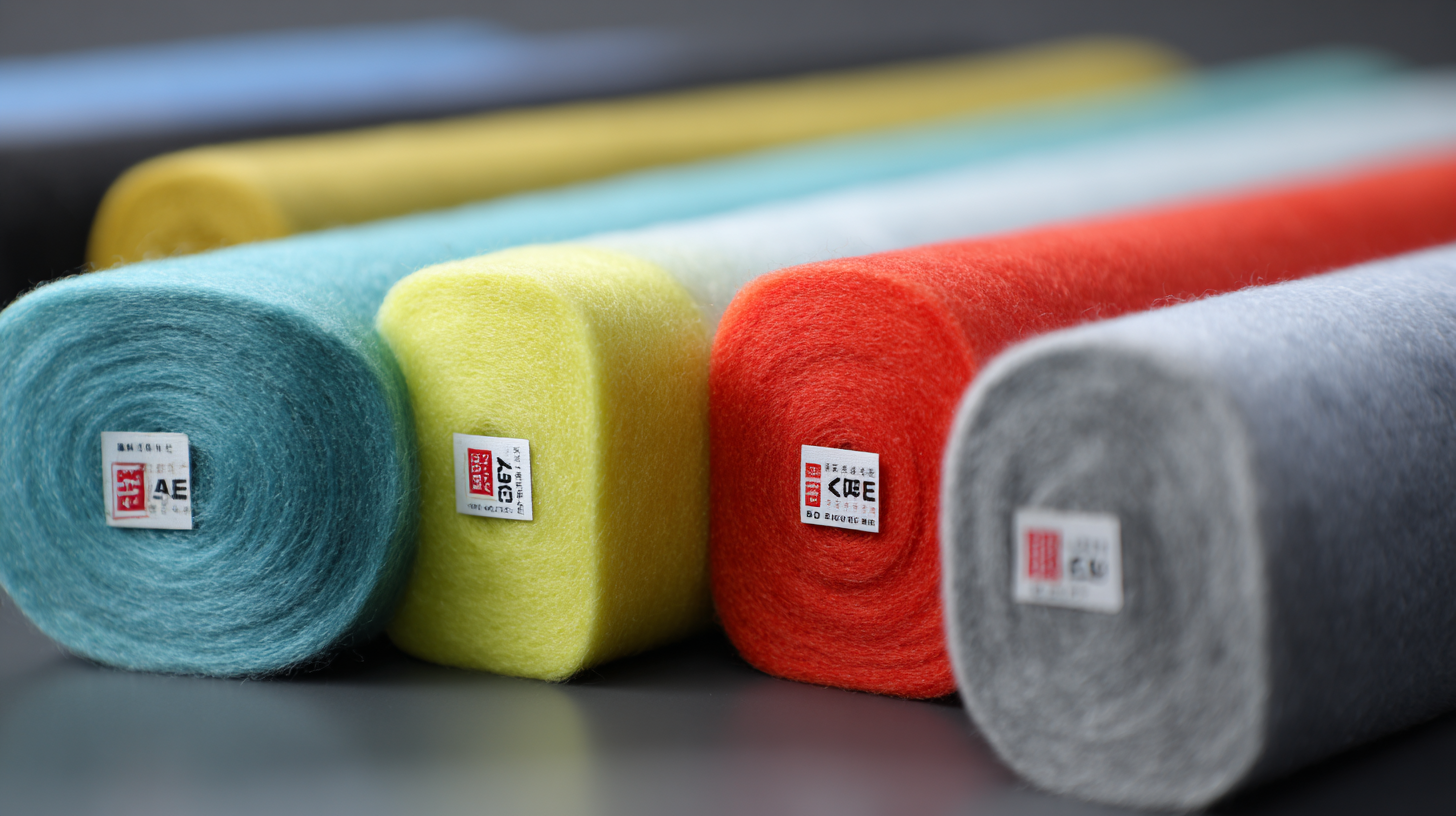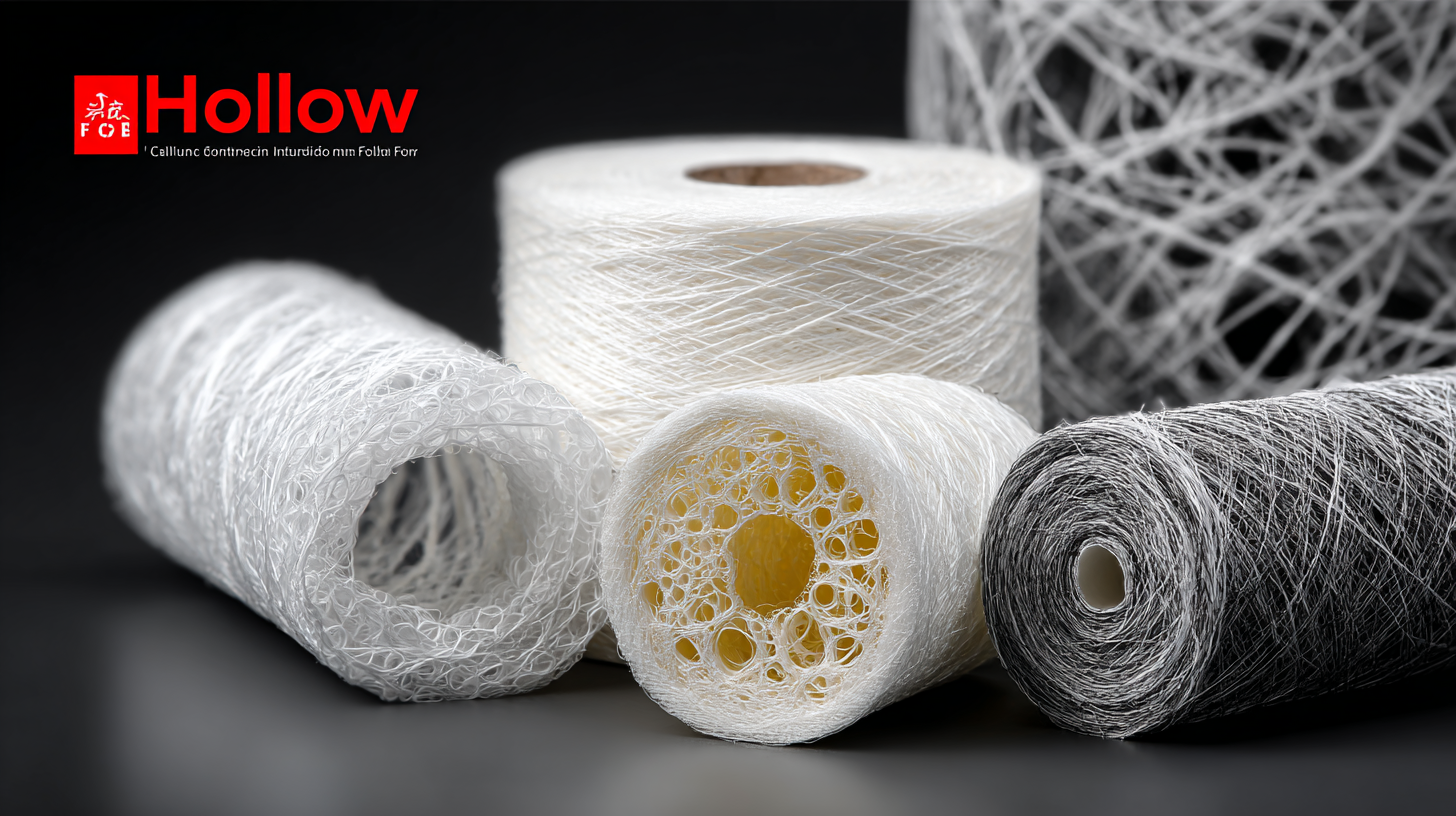
Innovative Solutions for Challenges in Automotive and Home Textile Industries Using Best Hollow Conjugated Fiber
In the rapidly evolving landscapes of the automotive and home textile industries, the demand for innovative solutions is more pressing than ever. One of the groundbreaking materials leading this transformation is Hollow Conjugated Fiber, a versatile product that not only enhances the performance characteristics of various applications but also contributes to sustainability efforts. As manufacturers strive for excellence, "中国优质制造,您的全球合作伙伴" embodies a commitment to quality and partnership in leveraging such advanced materials.

Hollow Conjugated Fiber offers unique benefits, including improved insulation, reduced weight, and enhanced comfort, making it an ideal choice for both automotive interiors and home textiles. This blog will explore the significant impact of Hollow Conjugated Fiber in addressing the unique challenges faced by these industries while underscoring the importance of collaboration and innovation in driving future advancements.
Innovative Applications of Hollow Conjugated Fibers in Automotive Interior Design
Hollow conjugated fibers are transforming the landscape of automotive interior design by providing innovative solutions that enhance both functionality and aesthetics. These unique fibers, known for their lightweight and insulating properties, are increasingly being incorporated into car interiors, offering improved thermal regulation and sound absorption. As manufacturers prioritize passenger comfort, the use of hollow conjugated fibers supports the creation of quieter and more energy-efficient vehicles.
Moreover, the versatility of hollow conjugated fibers allows for creative textile applications that align with modern automotive trends. Designers are using these fibers to develop intricate patterns and textures that elevate the visual appeal of interiors while maintaining durability. This innovation not only enriches the driving experience but also contributes to a sustainable future, as many hollow conjugated fibers are produced from recycled materials. The seamless integration of performance and style signifies a promising direction for automotive design, showcasing how advanced materials can redefine comfort and luxury on the road.
Innovative Solutions for Challenges in Automotive and Home Textile Industries Using Best Hollow Conjugated Fiber
| Application Area | Challenge Addressed | Hollow Conjugated Fiber Benefit | Innovative Application |
|---|---|---|---|
| Automotive Interiors | Heat Insulation | Enhanced thermal properties | Soundproofing materials |
| Home Textiles | Durability | Increased tear resistance | Luxury upholstery fabrics |
| Automotive Seats | Comfort and Support | Enhanced cushioning | Lightweight padding materials |
| Window Treatments | Privacy and Light Control | Improved light blockage | Thermal curtains |
| Floor Coverings | Noise Reduction | Sound absorption | Carpets and rugs |
Addressing Sustainability Challenges in Home Textile Production with Advanced Fibers
The home textile industry faces significant sustainability challenges, primarily driven by resource-intensive production methods and environmental concerns. Advanced hollow conjugated fibers present a promising solution, offering enhanced performance while reducing the ecological footprint. These fibers are not only lightweight but also have excellent thermal insulation properties, which can lead to decreased energy consumption in heating and cooling processes. By integrating these innovative materials into production, manufacturers can create textiles that meet consumer demands for comfort without compromising sustainability.
**Tip:** When sourcing fibers for home textiles, prioritize suppliers that utilize eco-friendly practices. Look for certifications that indicate adherence to sustainable production methods, ensuring that the materials you choose contribute positively to the environment.
Furthermore, utilizing hollow conjugated fibers allows for the reduction of raw material usage during production. This not only makes manufacturing more efficient but also minimizes waste. As consumer awareness of sustainability continues to grow, brands that adopt these advanced fibers can enhance their market appeal while playing a vital role in preserving our planet.
**Tip:** Consider developing partnerships with research institutions focused on textile innovation. Collaborating with experts can help you stay ahead of industry trends and implement cutting-edge technologies that cater to eco-conscious consumers.

Enhancing Performance: The Role of Hollow Conjugated Fibers in Automotive Safety Features
Hollow conjugated fibers are revolutionizing the automotive industry, particularly in the enhancement of safety features. These fibers, known for their unique structure that traps air, provide exceptional insulation and impact resistance. According to a report from Grand View Research, the global market for hollow fibers is anticipated to reach $10.5 billion by 2026, largely driven by the automotive sector's demand for lightweight materials that enhance crash safety without compromising performance.
The integration of hollow conjugated fibers into automotive components like seat cushions, headliners, and interior panels offers significant benefits. For instance, these fibers contribute to weight reduction, which directly influences fuel efficiency and overall vehicle performance. A study by the Automotive Composites Alliance indicates that using lightweight materials can improve fuel efficiency by up to 5% in conventional vehicles. Furthermore, the inherent resilience of hollow fibers enhances safety by absorbing and dissipating energy during a collision, thus minimizing impact forces on occupants.
As automotive manufacturers strive to meet stricter safety regulations and environmental standards, the utilization of hollow conjugated fibers presents an innovative solution that not only bolsters safety but also promotes sustainable practices. With continuous advancements in fiber technology, the potential applications and benefits for the automotive industry are bound to expand, paving the way for safer and more efficient vehicles.
Cost-Effectiveness: Economic Benefits of Integrating Hollow Conjugated Fibers in Textiles
The integration of hollow conjugated fibers in both the automotive and home textile industries brings about significant cost-effectiveness that cannot be overlooked. These innovative fibers, known for their lightweight and superior insulation properties, provide manufacturers with the opportunity to reduce material usage while enhancing product performance. In automotive applications, the reduction in weight not only improves fuel efficiency but also lowers overall production costs, making vehicles more affordable for consumers. Additionally, the insulating qualities of these fibers contribute to enhanced comfort for passengers, a vital consideration in modern vehicle design.
In the home textile sector, hollow conjugated fibers present an equally compelling case for economic benefits. Their ability to retain warmth while being less dense allows for the production of high-performance textiles that require less material input. This not only decreases manufacturing costs but also appeals to environmentally conscious consumers seeking sustainable products. Furthermore, the durability and easy maintenance of textiles made with hollow conjugated fibers can lead to lower replacement rates, further maximizing cost savings for both manufacturers and consumers. By embracing these innovative solutions, companies in these industries can thrive economically while meeting the rising demand for high-quality, sustainable materials.
Market Trends: The Growing Demand for High-Performance Fibers in Automotive and Home Textiles
The automotive and home textile industries are witnessing a significant surge in demand for high-performance fibers, driven by the need for enhanced durability, comfort, and sustainability. According to a recent report from Allied Market Research, the global automotive textile market is projected to reach $30.45 billion by 2026, with a compound annual growth rate (CAGR) of 4.4% from 2019 to 2026. This growth is significantly influenced by the trends toward lightweight materials and advanced composites that contribute to improved fuel efficiency and reduced emissions in vehicles. Hollow conjugated fibers, known for their exceptional thermal insulation and lightweight characteristics, are becoming increasingly popular as manufacturers aim to meet these industry demands.
Similarly, the home textile sector is also evolving, with a focus on innovative materials that offer superior functional properties. Research from Technavio indicates that the global home textile market will grow by $32.63 billion from 2023 to 2027, registering a robust CAGR of 3.78%. Consumers are now prioritizing high-performance textiles that are durable, easy to care for, and eco-friendly. Hollow conjugated fibers serve as a perfect solution, as they not only enhance the softness and resilience of textiles but also contribute to better moisture management and thermal regulation. With the growing awareness of environmental sustainability, the transition towards high-performance fibers aligns with both consumer preferences and regulatory demands for greener production methods across these industries.




